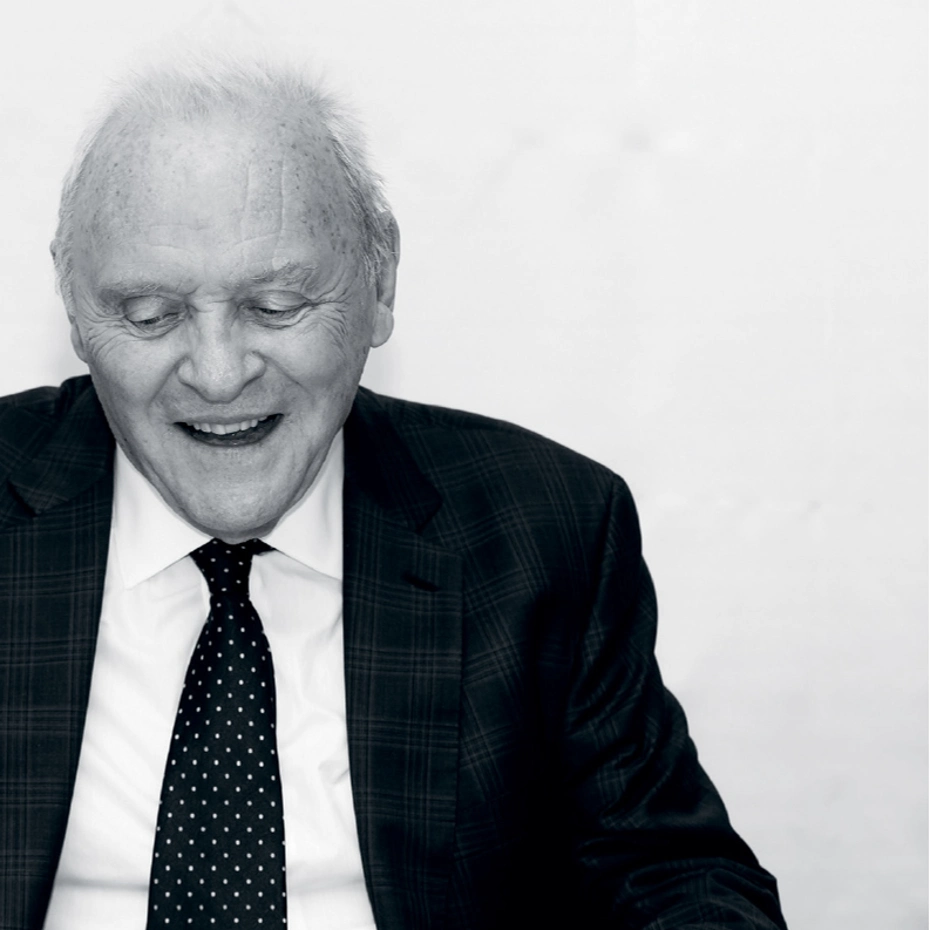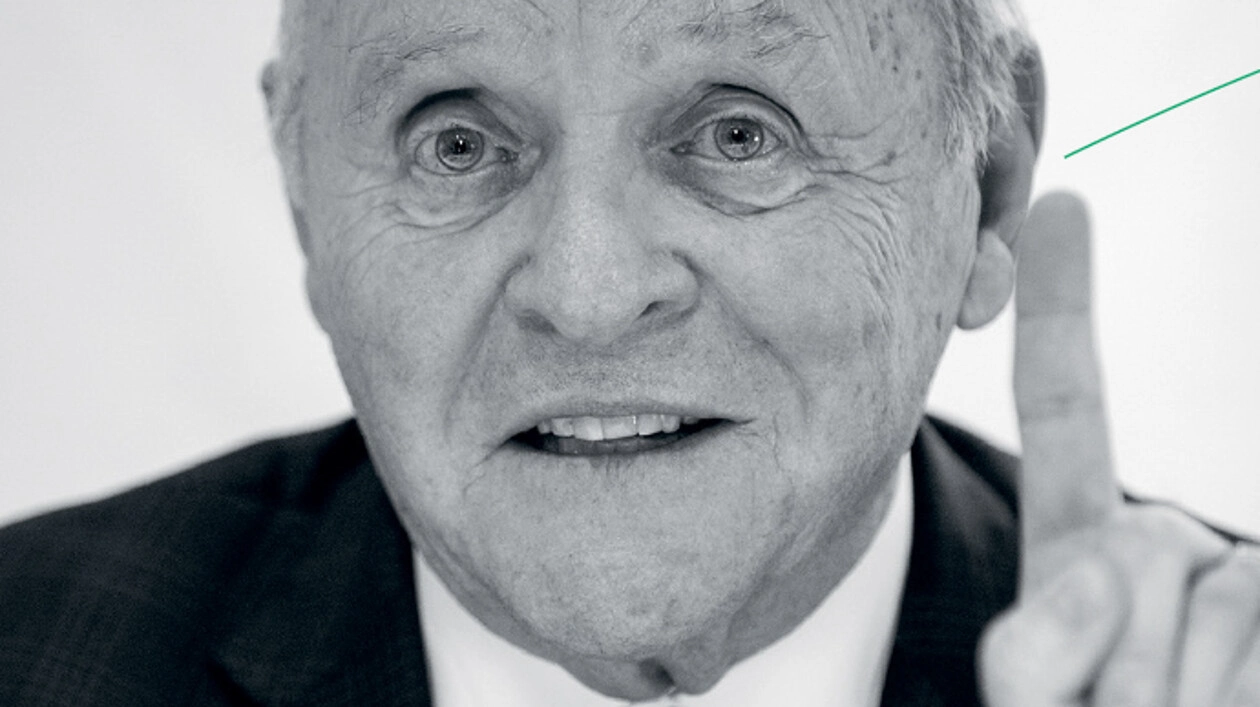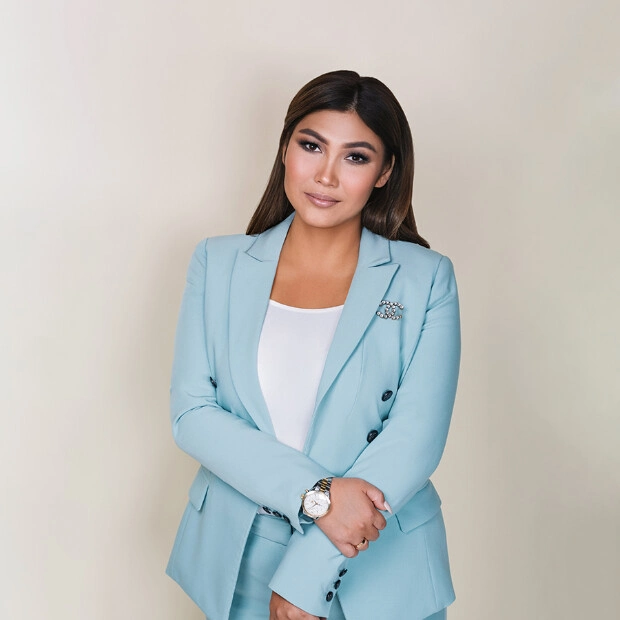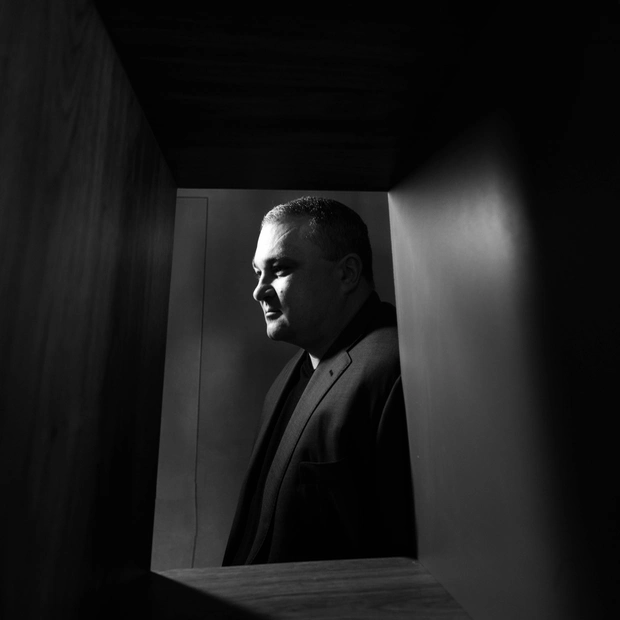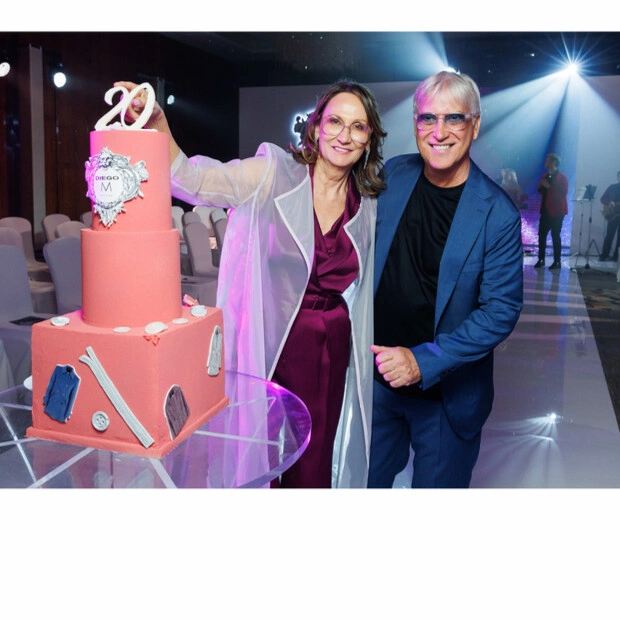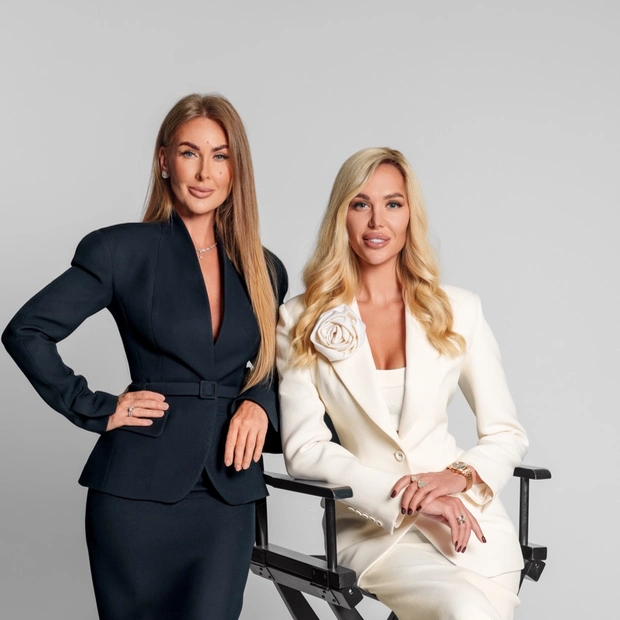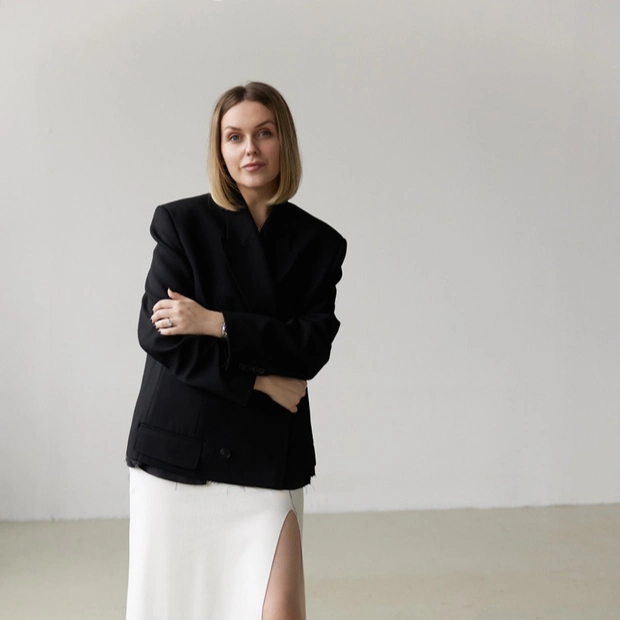interview — Nellee Holmes
Via Zoom
With his mind at peace and his spirit well-balanced, he is able to watch the world and humanity from a meta-position and see his father in himself. In this genius’s words, you cannot but feel genuine kindness and warmth towards each and every one he mentions. The brilliant play actor talks about wisdom, zen, the succession of generations, the finitude of being, the film stars of today and the days long gone, the certainty of death, and the pleasure life can afford in an interview with Nellee Holmes, our Hollywood correspondent and a voter of the Golden Globe Awards.
Nellee Holmes. Tony, so good to see you. I’m trying to imagine how you’re struggling with the lockdown. Could you talk a little about what it’s been like for you?
Anthony Hopkins. Well, I just decided to get on with it, and, you know, accept it. I don't want to take risks because I'm getting on in years. So, I've been in lockdown for about eight months, and I've got used to it, you know. I read, paint, play the piano, and all that stuff. I've got things to do and, you know, I'm quite content. I don't know, and none of us knows how it's all going to end up, but, yeah, I feel pretty good, actually. You know, I've been working non-stop for about five or six years. I can't really call my workload too heavy, but it's been work, you know, so it's good to do nothing. The only thing I'm trying to come to terms with is to accept that there's nothing to do at the moment. Just sit here and weather it out, I guess. In fact, the last piece of work I did was The Father, and that must have been well over a year ago. I think we finished last July or something like that, so it's been a long time. Well, you know, I'm very fortunate. I have been working a lot as an actor and am very grateful, but now is the time for me to sit around without thinking too much. That's it.
N.H. I’d like to ask you about your birthday.
A.H. I was born on New Year's Eve, the 31st of December. I am not a good party boy. I used to celebrate it when I was younger, but I don’t think I can remember the last celebration. I’ve had my 60th, 70th, 80th birthdays, but I make no big deal about it. It's just another day. Now, I am going to turn 84. I don't know if we're allowed to have anyone in the house. I’ll blow out a candle, maybe. No, it's no big deal. I've had 83 of them by now, so I've got used to it.
N.H. What an incredible, unbelievable, and brilliant performance! Watching it, I was thinking, ‘Dreams. Confusion. Illusions. What’s real, and what’s not?’ Could you explain what the word ‘illusion’ means to you?
A.H. Well, it wasn't a difficult part for me to play. Not at all. As I'm getting older, I look back over my life, and it all seems to be a bit of an illusion as if somebody else wrote the script for me. I don't know how my life has unfolded, in a way, beyond my control and knowledge. Therefore, strangely enough, I can't take credit for any of it. Looking back, everything seems to be just an illusion, mystical, as it may sound. I look back and ask myself, ‘How did any of that happen?’ We go through life, and life is tough. Still, I've been very fortunate, you know. People die, and my mother, father, and grandparents are gone. People I've known have died, but I'm still here at 83 years of age, looking back and thinking, ‘How did I get here? How have I survived all these years, and yet I have so much of me?’ Isn’t it elusive? This may sound really weird, but that's what it feels like to me. It feels like a long story of somebody else's life, just like my part in The Father. It was Florian Zeller’s first film. He'd never directed films before. He's amazing! He wrote the original play. Then Christopher Hampton wrote the screenplay, and Florian directed it. It was great to work with Zeller, Olivia Colman, Olivia Williams, Rufus Sewell, and everyone else. It was easy because I'm of that age now. I've forgotten what I was going to say, but what particularly struck me when I saw the film was my father in me. I’m my father's copy. I didn't even know it. I didn't consciously play that way. But looking at it, I think, ‘That's my old man! That's my father!’ He could be pretty tough, belligerent, and argumentative. I thought over the years, I'd learnt to calm that side of my nature down, but it was my father! I remember the last scene in the film. Just before we started shooting it, I was looking at the chair I’d used to sit in and the glasses on the table and remembered my father after he’d died picking up his reading glasses and the book he'd been reading, and thought, ‘God, did he ever exist?’ Do any of us really exist? I don't know. It's all such a mystery to me. Oddly enough, I found some strange peace in this idea, you know. My parents didn't suffer from dementia. I don't think they did even though my father suffered depression till the very end. He had a year of decline from heart disease and became quite belligerent with me. Maybe, because I represented something that was awaiting me some years ahead. He was very depressed. I understood I was looking at that from the past, thinking to myself, ‘That's what my father was, and that's what it must be like’. Now, I read a lot, paint, and play the piano five days a week. I play complicated stuff. Not because I want to play in Carnegie Hall. Far from it! I do it because it keeps my brain active. I memorise things so that I can keep my memory facility going, you know. So far, I've experienced what dementia is like only in one area. A friend of mine, here in California, the father of the family. He was from New York. He'd be sitting in his son-in-law's house out here in Palisades, looking out the window. One day, he said, ‘The Hudson's looking very wide tonight’. Well, he thought the Pacific was the Hudson. I could see the way it affected his family, his son-in-law, his wife, and his daughter. The pain that they went through, having to explain things to him! Well, in the end, he'd sit there and drink his coffee very peacefully, not knowing who anyone was. I thought, ‘What a strange world it must be!’ On the other hand, it's kind of comforting. Maybe, it's a way of nature shutting down.
N.H. We often forget that our physical bodies are not machines. They need rest and lots of care. Healthy minds in healthy bodies help us be more productive and achieve better results both at work and in our personal lives. What do you do to improve your wellness and restore the balance of mind and body?
A.H. Well, I was born strong and have always been pretty strong and muscular. It’s my Welsh background, I guess. So, I work out five days a week in the gym, on a treadmill, do some weights, not too strenuously, you know, and keep as flexible as I can. I also read a lot and practise meditation. And, you know, I stay cheerful even when dark moods come upon me, which they sometimes do in every human’s life. Like this lockdown. You can’t but think, ‘Is there any way out?’, but the world has been through crises before. That's the way the world is, and we’ve got to accept it. I don't want to sound mushy about it, but I say thank you to whatever given to me in my life. Especially in the tough business I'm in. I came to America many years ago and have been given a great life here. So, I feel appreciation and gratitude for what I have. I'm not, you know, a saint or anything like that. I’m only human, but I do remember that I'm very lucky. In the acting profession, I see a whole generation of young people starting out, even though it must be especially tough now. What's going to happen? Well, it would be trite to say this too shall pass. It's easy to say that, but in the meantime, there's a lot of pain and suffering in the world. I'm grateful to have lived so long because I remember so much. You know, you come this way gradually and in a strange way. I remember the post-war years in Britain and Wales. I was born just before World War II and remember its last years although we didn't suffer much, you know. The cities around were bombed. There was a dark depression after the war, but we pulled through. I think what keeps me going is a perspective. I watch documentary films. I'm kind of obsessed about it. The documentary films of post-war Europe. God! The devastation, the horrors, millions of dead! I look at our world today and think, ‘Well, yeah, things are tough sometimes, and we go through strange times, but we can survive!’ Here in America, the powerful nation that it is, we will survive. So, I think it’s the feeling of gratitude and appreciation that keeps me healthy. It’s a long answer.
N.H. Olivia Colman says she has a great short-term memory, but the next day after the shoot she has no idea what she said the day before. I think, in a way, you’ve had the same intuitive manner of acting throughout your entire career. What was it like to work with Olivia, who, in a sense, is very similar to you?
A.H. Oh, she was wonderful to work with. The whole cast was, you know. It wasn't a large one, but all the actors were excellent. She's very much like ... I have to be careful of using words, but she didn't take it too seriously. She's so good, and she’s like me. I mean, when you've been around a bit of time, one day, you get to a point when you just don't make a big deal of it anymore. I'm much older than Olivia, but I think she's alike. I get the script and treat it as a road map. I've been asked if we just learn the lines. Well, yes, in a way. The script is like a guide from outer space for a car driver. What do you call these navigation things? I don't know. In the old days, we had road maps to follow. Going from here to Las Vegas or Phoenix, you follow a route, and, you know, every so often, you may want to take a little side road. You don't have to analyse the map. You just follow it. The script is the same. You get a really great screenplay, a script, a play, or whatever it is, whether it's by Christopher Hampton, Florian Zeller, Tennessee Williams, Shakespeare, or whoever it is, and you follow this ‘road map’ and ‘drive along that route’. En route, you look at ‘sideways, little byways, and side roads’ thinking, ‘I'll go this way and slightly reinterpret but never rewrite it’. For example, it was the very first day of filming and the very first scene Olivia and I had together. We started on Monday morning, and we didn't rehearse, you know, but just did a walk through it. Florian was there with us while we were doing all that and said, ‘Okay, let's have a go at it. Everything okay? Yeah. Do it. Action! Good.’ Let's do one more, and you’ll find out how easy it is if you just listen. Laurette Taylor, the great American stage actress, said the art of acting is listening, and it is. If you listen to the other person as they're speaking, it's as if you're hearing it for the first time, so it keeps it fresh. You have to listen. That's the only way. Once, Meryl Streep said something very interesting in an interview about The Bridges of Madison County with Clint Eastwood as a journalist. When asked if it took a lot of intense concentration, she said, ‘No, intense is the last thing you need’. You have to loosen up, you know, and just learn your stuff. That's what I do. I was so pleased when I watched The Father a few weeks ago, as I’d forgotten how I’d got all that and didn’t remember taking all those courses in this and that. What was reflected back to me was the fact that I had actually worked meticulously on learning the lines so well over and over again. As long as you do your homework, which you have to, you have to do the preparation, which is learning your lines, it becomes your second nature. You don't have to think about it, so when another line and the other person come in, your brain automatically takes over and improvises in a realistic way. When you're younger, you want to become very real and intense, and that's all right. Then, you get to a certain age and think, ‘Oh, well, I'm a fan of those great guys like William Holden or Robert Mitchum.’ So, you just let it roll off you and don’t take it all so seriously. That makes it easier. Now that I’ve met Mitchum, they're an example of just making it look easy.
N.H. I know your wife Stella very well. It’s fantastic that she wrote a script and directed a film you acted in. I’d like to ask you about this experience of working with Stella. In that film, you play a doctor, which is the opposite of what you do in this film. You seem to be a psychologist.
A.H. She was an excellent director, and it’s coming out on the 4th of December. It’s her first time. She wrote the script and directed everyone. I mean, it is really quite remarkable. And it was easy. It’s a fine film, in which I play a psychiatrist, with a fine cast and some wonderful performances, so I am very happy for her. She did it and is very proud of it. So am I. I was very impressed by her work. She would be sitting there in the director’s chair, looking at the monitor, and saying, ‘Okay. Cut.’ She’d been on set, as I’d been. She is a very quick study, knows her work well, and has no worries.
N.H. We’ve been talking about you and your wife, forgetting about the third member of your family, Niblo. This cat means so much to you. I always see him on your lap while you’re playing the piano.
A.H. We got him in Budapest and brought him home. He’s ten now. I love animals. We help cats and dogs and have just rescued one recently. That young guy was pretty badly injured, I don’t know how, but now, he’s doing well. I love animals because they can teach us so many things. I have great respect for all animals. I find it really painful to see some people treat animals disrespectfully. I do love them and don’t underestimate their supreme intelligence. They just happen to be on a plain different from ours. They have their means of survival and ways of coping with hardships and getting through life. As far as we know, they are not blessed or rather not cursed with the knowledge of time and mortality. So, I am just fascinated with animals and love them dearly. I love my cat Niblo. I’ve always had cats, ever since I was a boy. Of course, when they die, it brings a lot of grief, but I still love them. I think they are such beautiful creatures, and we can learn a lot from them.
N.H. Unlike other characters suffering from dementia, this one is presented from the inside. He’s completely lost his sense of identity and reality. When you work on such a character, do you need to learn about his background and understand who he is since he doesn’t know who he is anymore?
A.H. No, I just learn the lines.
N.H. Did you do so working on all your characters, or specifically on this one?
A.H. All of them. I mean, it’s a bit of a shallow answer, I guess, but I don’t see any point in belabouring it, diving deep, and getting intensely into it because I’ve been doing it for a long time, and this part was straight forward for me to play. I don’t suffer from a memory loss yet. I have slowed down a lot. So, I don’t delve deeply into how to play a part. Florian Zeller named the character Anthony, so it was easy for me to play him. I did add one line, though. When asked in the doctor’s office, ‘Date of birth?’, I said, ‘December 31st, 1937’, which is my actual birthday. I do have an obsessive brain, so I do remember things like dates, days, and years. I find it very important and am fascinated by dates and time. Beyond that, playing the part, working with such a wonderful director and a great cast, was easy. The only problem was that my body started to ache. The only theory I have, maybe, a cockamamie one, that if we take it too intensely, the brain follows suit. It is not as sharp as we think it is and has no sense of humour. If I am playing a man with dementia thinking about getting old, the brain thinks about getting old. So, I have to tell it that I am only playing a game. But my body aches, my back aches. I suppose four weeks of unconsciously getting into the part caused it. Anyway, it’s no big deal. It’s my thing, so go and have some fun with it and enjoy it. It’s one of the greatest things I’ve done. I’ve been very fortunate working with people like Emma Thompson, Ian McKellen, Jim Carter, as well as Olivia Colman, Olivia Williams, Mark Gatiss, Rufus Sewell, and Imogen Poots. Wonderful actors! So, it makes it easy. I think it was the most enjoyable thing I’d done. When I am done, people ask me how I can enjoy it. Well, that’s my job. I mean, I enjoy working, getting out of the house, and doing something different. It’s a novelty. Why make a big deal of it? I’ve been doing this for a long time. I learnt my job working with such great people as Sir Laurence Olivier, John Gielgud, Peter O’Toole, Katherine Hepburn, and people like that. So, I have been around the block a few times and watched them work. They never made a big deal of it. They showed up on time, did their job, and went home. There was a grace about them all. I hoped I’d live long enough to be able to do the same that is play with grace and respect for the script, the other actors, the crew, and everyone. They are the ones who make it all happen. It makes life easier if you just pay respect to what you do. It doesn’t take a genius to do that. A lot has been written about actors. As to me, I like watching American movie stars, prime examples of great cinematic and stage acting, who made it look so good because they didn’t act so much, like Humphrey Bogart in Casablanca, Spencer Tracy, Bette Davis, and all of those old guys.
N.H. What’s fascinating about this story is that growing old, each of us gets into a routine and likes things arranged in a certain way. Part of your character’s frustration is caused by somebody moving around his things. At least, that’s how he perceives it. How attentive are you to detail in your physical environment? How much of a stickler are you when it comes to things being in their proper places?
A.H. You’d better ask my wife. Yeah, such words as ‘obsessive’ are so overloaded. Well, I am not obsessive. I like things to be in order but always make a mess of them anyway. I stack books up, and one day, they all fall on me. You know, I call myself a carny, which means a carnival person. I show up on the job, do it wherever we are at whatever exotic places like Paris or Rome, and then move to another project. It’s like being in a carnival. When a boy, I was attracted to circuses and the chaos of that kind of life. Not that my life is that chaotic, mind you. Still, I can’t really explain it. I think I am pretty free while improvising. I never really plan anything.
N.H. Is there a chair that has to be in a particular spot?
A.H. My cat sits on the chair that I consider mine. I don’t know… No, life is too short to worry about stupid things like that. I don’t want to live in chaos. But no, I can’t take that seriously. I’m a bit of a … No, not at all. I enjoy freedom. For example, eating. I take care of my ration because I’m getting older and don’t eat stuff that will clog my arteries. Hopefully. So, I have a fairly healthy diet. Still, I am not indifferent even though I’m not a gourmand with food or wine or anything like that. As long as it tastes fine, I couldn’t care less about it. I like oatmeal in the morning and a kind of protein shake, maybe, a burger for lunch, and a veggie burger or something like that for dinner. So, no, I don’t care about stuff like that. It doesn’t bother me. I am not obsessive about that. I don’t have to be in the right place all the time and don’t want to be fixed. So, I am a bit of a mild chaos, let’s say. I don’t care. I never plan anything. I go down and play some Rachmaninoff and a bit of Brahms. I’m not aiming to go to Carnegie Hall. I just play for the sheer fun of it.
N.H. The film reminded me of King Lear. There are some things these movies have in common. You’ve just mentioned Emma Thompson, who played your character’s daughter. So did Olivia Colman. Could you compare working with these women and say a few words about the father-daughter relationship as you’ve been a father of some rather impressive daughters recently?
A.H. Both Emma Thompson and Olivia were quite extraordinary. King Lear was my third work with Emma after Howard’s End and The Remains of the Day. In Lear, she played my daughter. What was extraordinary about her is that she was ferocious and really powerful. Yet, on set, she was friendly and a lot of fun to work with. The same thing was with Olivia Colman, a great actor too. Her emotional responses were so spontaneous. I was amazed at them and felt bad in moments when I was particularly cruel to her. Working with Emma, Olivia Colman, or any great actor like them, whoever they are, is like playing tennis. I don’t play tennis or any other sports, actually, but I suppose that’s what it’s like because you have an opponent, an opposite. And it becomes easy, so you don’t have to sweat it or make a big deal of it. We did the television adaptation of Lear in 2018, almost three years ago. I had played Lear 32 years before, in 1986, a long time ago. It was a good production, David Hare’s splendid job. I was 49 at the time and technically alright. I tended to go over the top and was a bit all over the place. Years later, Richard Eyre, who directed The Dresser with Ian McKellen, another great actor I worked with, told me I ought to have a go at King Lear again. I said I’d like to but not in the theatre. He replied, ‘Okay. Let’s think about it’. A year later, I asked Richard Eyre if he thought we could do it. He answered affirmatively and cast it. We exchanged long emails, and I gave him my interpretation of what I felt the part was. What I am saying, in essence, is I’d lived another 32 years and gained a lot of life experience. The young cannot understand what it’s like to be a cantankerous old man, frightened of death and turned into ... Well, if you make your ego so powerful, you pay a high price for it. Lear is incapable of loving and cannot be loved. He is afraid of it. So, he torments in his macho way but is just going to toughen it up. Of course, there is an enormous price to pay: isolation, loneliness, and, finally, madness. As to my part in The Father, well, Anthony was obviously a successful man, a bright engineer, disciplined, well-ordered, used to having his own way, probably, a bit of a tough father, not a bad person, but just an authoritarian. And he finally starts losing his anchors. That’s a terrible thing for him. He’s in panic. Then he regains some lucidity and starts flirting with a young woman. It’s all ridiculous. In the end, he says, ‘I feel I am losing all my leaves and branches in the wind, and I’ve got nowhere to rest my head’. The most tragic thing about life is that we all have to face death. Life is terminal. We can never get off this planet alive. That’s the thing we have to face. The wonderful perspective of life that I have is that you may as well enjoy it because you never know. T.S. Eliot once said, ‘I have seen the moment of my greatness flicker, and I have seen the eternal footman hold my coat and snicker’.
